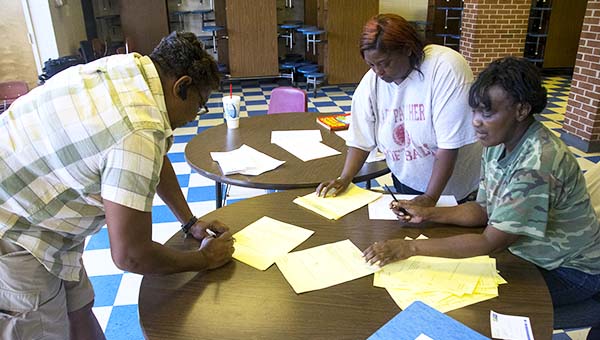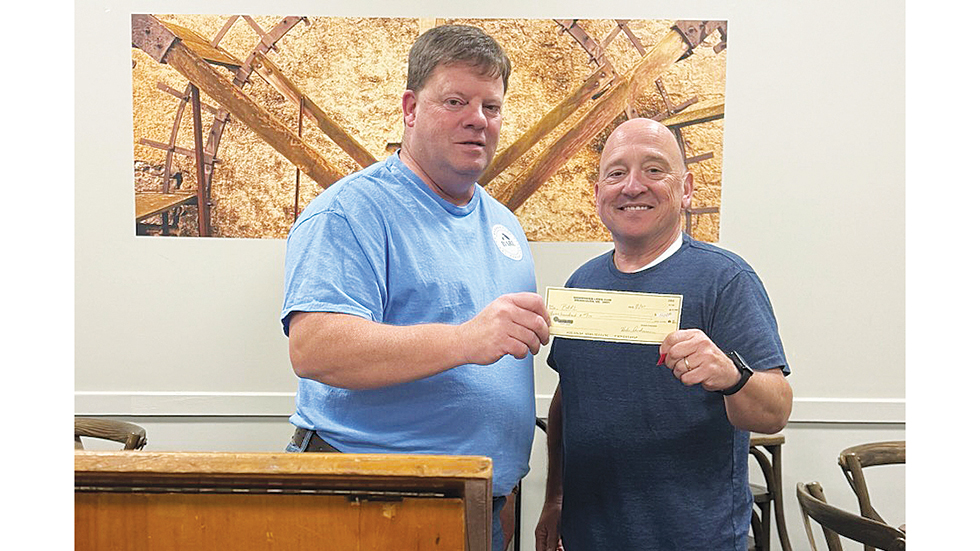Lodging tax is approved Tuesday in light turnout
Published 10:34 am Wednesday, July 9, 2014

DAILY LEADER / KATIE WILLIAMSON / Sherry Course, (from left) Juana Dixon and Argie Dixon count votes in the city election on the lodging tax at the Ward Six precinct at Mamie Martin Elementary School Tuesday night.
Despite a low voter turnout, the 2 percent tourism and economic development tax passed in the Brookhaven city election Tuesday.
The tax affects businesses with six or more room rentals used for overnight stays. Only people staying in the hotel will be taxed.
Mike Jinks, city clerk, said the tax should go into affect July 15.
Trending
The tax needed at least 60 percent of the vote to pass. It received 73 percent of 342 votes cast Tuesday. Jinks said they still have approximately five affidavit votes to process, which are not included in the 342 total. With approximately 7,000 registered voters in Brookhaven, voter turnout was a mere 5 percent in Tuesday’s election.
Mayor Joe Cox said the new tax will be a great tool to bring in revenue to promote tourism within Brookhaven. He said it is a tool other cities have had for years and cited Natchez as having a similar tax since 1973.
“We got it, and now we’ve got to get it to work and promote our cities,” he said.
The board of aldermen plan to use the funds to develop a positive image of the city to promote tourism, branding and imaging of the city, funding grants to promote and advertise multi-day events that require overnight stays, marketing of the FEMA conference space, arena and parks, web page improvements and “quality of life” infrastructure such as bike paths and walking trails.
David Phillips, Ward Six aldermen, had previously estimated the tax would generate between $100,000 to $120,000 for the city. The tax will mean an increase of $1 a night on a $50 hotel room and $2 a night on a $100 room.
The ballot for Tuesday’s election contained a resolution stating, “The City of Brookhaven, Mississippi, proposes to levy a 2 percent tax on the gross proceeds of room rentals from hotels, motels and bed and breakfasts with six or more guest rooms. The revenue generated will be to promote tourism and parks and recreation within the City of Brookhaven, Mississippi.” Voters were asked to select one of two options: “for the tax” or “against the tax.”





